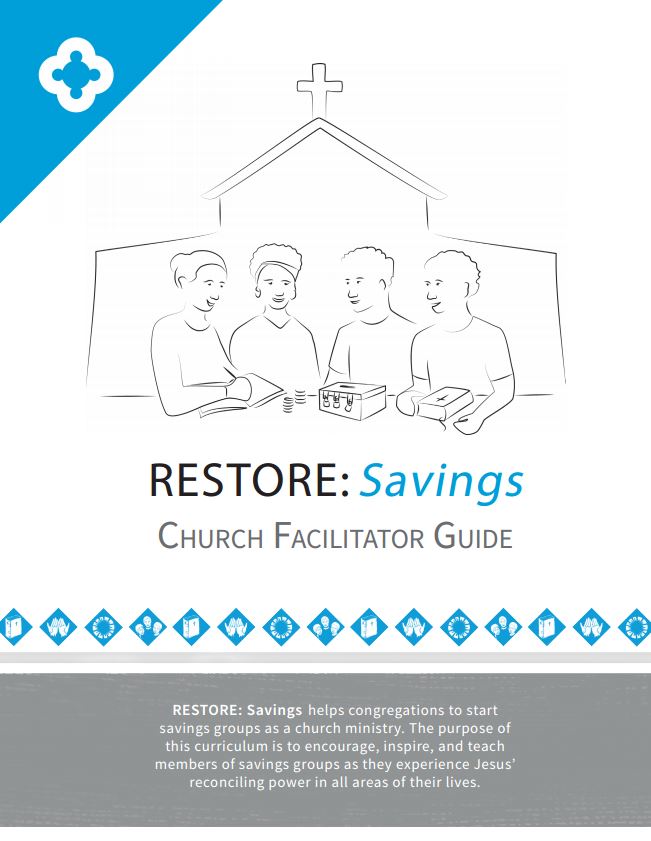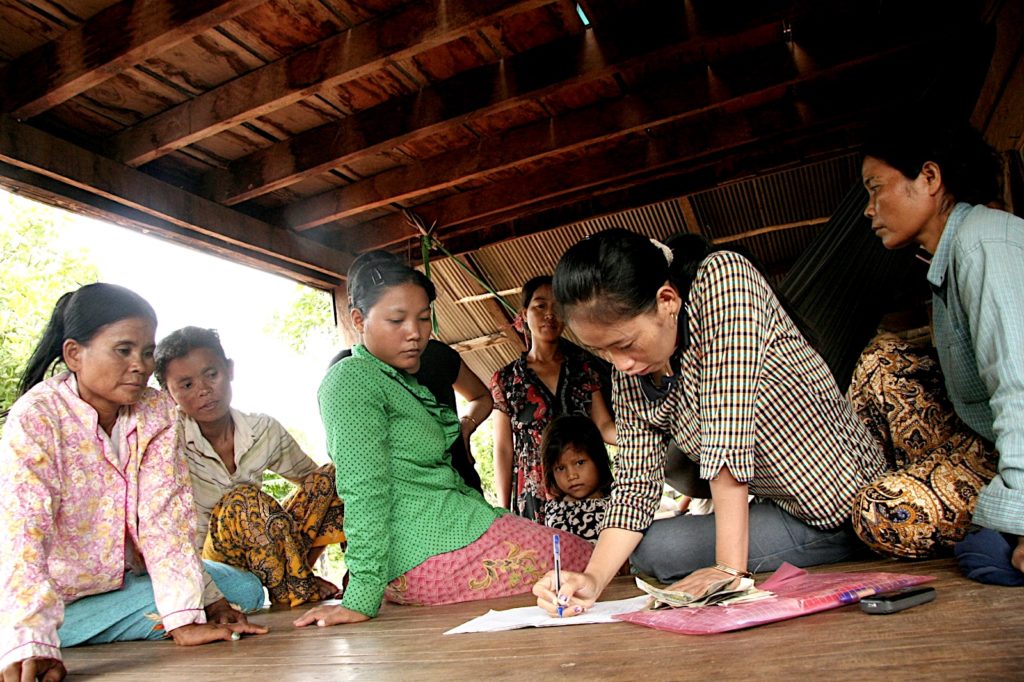While poverty is far more than a lack of money, how one handles his money has a measurable impact on his life, and God’s Word has a lot to say about this topic which impacts all areas of life.
Our friends at The Chalmers Center are trusted leaders in community development through local churches, promoting healthy relationships between the materially poor and those compelled to help, and equipping people to emerge from poverty using their own resources.
See this testimony from a church’s savings group in Togo, West Africa
Recently, Chalmers released a tool to help majority-world churches start savings groups as a ministry of the church. Group members pray, study Scripture, share life together, and save and lend their own money. By investing even pennies every week, committed group members can reap rewards that benefit their whole families and communities.
Restore: Savings integrates the best practices and principles of savings-group methodology, used by organizations worldwide, with biblical principles. It can be used as a discipleship and outreach tool while seeking to alleviate poverty wholistically.

Restore: Savings uses adult education principles such as small-group discussions and open questions. The training seeks to honor the dignity of each participant.

Savings groups generally have 10-20 members. They develop their own group rules about loan and savings terms, membership, fees, and other topics. The group is self governed; they elect a president, treasurer and secretary from among the group members. Members save their own money and lend out that money according to their own rules. No outside money is needed.
The Church Facilitator Guide is used to start and train groups, while the Ministry Coordinator Guide is used to orient church leadership to savings-group ministries and train and mentor Church Facilitators. Both of these guides are available for free download in English, French and Spanish here.
If you have questions about this program and how to apply it in your church, contact Laura Ellis at The Chalmers Center.




4 Responses
i work with AE Ghana. I want to start a community transformation group in some selected church with the Restore Savings Group from Chalmers. My organisation has asked social action managers to introduce such programmes to churches to empower members to save and loan themselves these monies. How do I go about it. I know there is no external support. But what does Chalmers input in this regard apart from not supporting financially. thank you very much
Hi Joana: it appears that Chalmers allows you to download three of their lessons (https://chalmers.org/training/restore-savings/) and then they recommend/require that you speak to one of their coaches. We have a wonderful Kingdomizer who is doing similar work in South Sudan. Let’s try and connect the two of you. I think it could be a great encouragement to you both.
Focusing on churches is very interesting, but also presents some potential downsides. May I ask:
(1) Are you using the VSLA model for Savings Groups?
(2) Do the churches tend to be exclusive in terms of membership, or do they see it in part as an outreach tool and an instrument of blessing for those outside the church?
(3) Is the Social Fund (if it’s VSLA) used to benefit members outside the SG?
(4) Who is supporting the start-up phase of these groups — Chalmers staff, local NGO’s?
(5) Do you have any evidence that the SG’s are self-replicating?
Craig, here’s a response from Laura at The Chalmers Center:
Focusing on churches is very interesting, but also presents some potential downsides.
Laura: working with churches can be tricky, but at the same time very powerful. Churches can promote truly holistic transformation to groups. Financial management are an issue for most people in churches, regardless of economic status. Helping people learn ways to manage their money from a Biblical perspective is important. Restore: Savings done in churches can help this. Pastors in rural areas find that they can’t personally address the poverty in their congregation. Savings groups provide them with a tool to help their congregation and can be used to help the church to reach out into their community.
May I ask:
(1) Are you using the VSLA model for Savings Groups?
Laura: We use the same basic model. Our curriculum is specifically designed for the church and designed to be holistic, not just looking at finances. We would say our curriculum is much more participatory, and obviously biblically integrated.
(2) Do the churches tend to be exclusive in terms of membership, or do they see it in part as an outreach tool and an instrument of blessing for those outside the church?
Laura: Churches can use groups as both discipleship or outreach tool. We suggest churches starting a group within their church before reaching out, just to get some experience. But, really its up to the church/ church leadership to decide how the SG ministry can best help the church’s ministry.
(3) Is the Social Fund (if it’s VSLA) used to benefit members outside the SG?
Laura: The group decides how they use the fund. In general, it is used to help those in the group.
(4) Who is supporting the start-up phase of these groups — Chalmers staff, local NGO’s?
Laura: The local NGO or church most likely would be the one supporting the start up. We can help answer questions and recommend regional trainers (especially in Africa) who can help.
(5) Do you have any evidence that the SG’s are self-replicating?
Laura: They can be. I’ve seen them replicate, but the quality of the groups tend to be lower as there is loss of knowledge in the transfer.